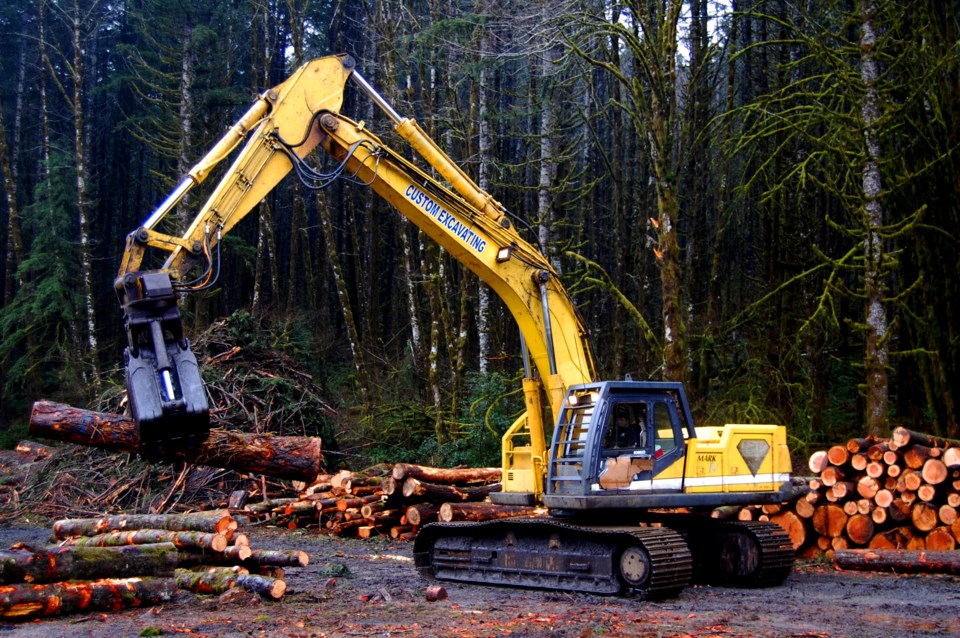While most B.C. businesses shut down by the pandemic look to the provincial health officer for guidance on when they might cautiously reopen, many resource companies turn more to global markets and balance sheets for that guidance.
Companies operating sawmills, mines and fish farms were deemed essential. They continued to operate, although with staggered shifts, enhanced cleaning and physical distancing rules in plants, mills and work camps.
B.C.’s forest industry may be the resource sector hardest hit by both workplace restrictions and falling demand for commodities.
Several forestry companies in B.C. began implementing two-week curtailments in March, though sawmills had starting shutting down much early, and not because of COVID-19.
In 2019, a slump in U.S. construction, higher stumpage rates, American duties on softwood lumber, a shrinking timber supply and one of the longest strikes ever by sawmill workers on Vancouver Island converged into a perfect storm that left thousands either on picket lines or unemployment lines.
B.C. forestry companies went from making record profits in 2017 and 2018 to posting losses in 2019, and more than 3,000 sawmill workers lost their jobs. Many more logging contractors were also left without work.
This year, Canfor Corp. reduced sawmill capacity for three weeks at its Canadian mills, but the company has since extended the curtailments. It has tentatively aimed to resume some operations at the beginning of May.
Others had not yet set dates for restarting as of last week.
“Housing starts have been impacted significantly by the pandemic, so markets have dropped off for sure,” said Susan Yurkovich, CEO of the Council of Forest Industries (COFI). “There’s been a mix of COVID closures and then market-related curtailments. Some operations are still curtailed because of market reasons.”
If B.C. forestry companies have plans for a restart, they are keeping them close to their chest. Asked what their post-pandemic plans are, none were willing to talk about them. All of their guidance in financial reports appears related to markets and balance sheets, not workplace restrictions.
As for mining, many B.C. mines have continued to operate pretty much as usual. But as with forestry, the industry could face uncertainties related to curbed demand for key commodities like copper and metallurgical coal.
“Fortunately, the majority of B.C.’s mines are continuing to operate,” said Michael Goehring, president and CEO of the Mining Association of BC. “Of course, a significant concern is future demand and price of metals and steel-making coal.”
This year, he said, “is done – it’s all negative.”
Centerra Gold Inc. was one of the companies that temporarily shut down some of its mining operations in B.C. as a result of pandemic restrictions. It halted mining operations at its Mount Milligan copper-gold mine in B.C. starting on April 6.
Although there were no outbreaks there, the company was taking precautionary measures, because the mine site is in a remote location where workers are bused in and out for two-week rotations and live in a work camp, said John Pearson, Centerra’s vice-president of investor relations.
The company sent 200 workers home after it shut down mining operations. It kept processing stockpiled ore, but then extended the shutdown with a mill maintenance program. Once the mill maintenance is done, Pearson said it will begin a “slow, gradual ramp-up after that.”



